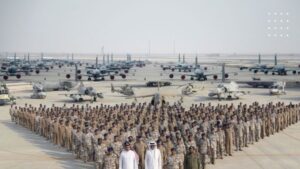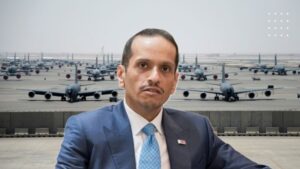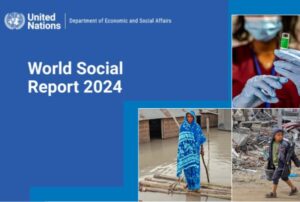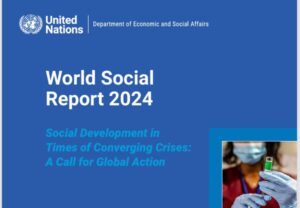Qatar Blocks Offensive Use of Al-Udeid Air Base Amid Rising Tensions
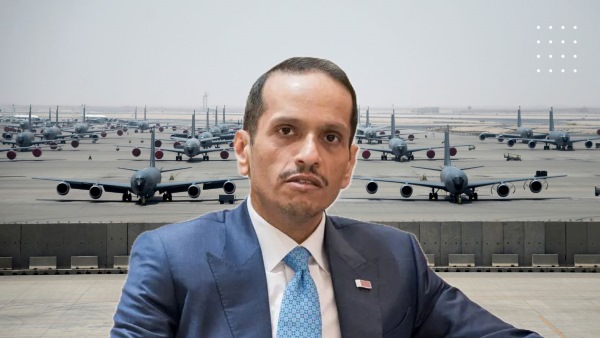
In a significant statement, Qatar has reiterated its stance that it will not allow attacks to be launched from the Al-Udeid Air Base, a critical U.S. military facility, against any country in the region or beyond. This declaration comes amid rising tensions between regional actors, particularly involving Iran and Israel, and ongoing conflicts in Lebanon and Gaza.
Qatar’s Prime Minister and Foreign Minister, Mohammed Bin Abdulrahman Al-Thani, emphasized during an interview with state-run Qatar TV that “the State of Qatar does not accept that attacks or wars be launched from Al-Udeid Base against countries in the region or beyond.” This firm position highlights Qatar’s complex role as a host to one of the most strategically important U.S. military installations in the Middle East while maintaining a commitment to regional diplomacy and de-escalation.
The Role of Al-Udeid Air Base
Al-Udeid Air Base, located southwest of Doha, is one of the largest U.S. military installations in the Middle East, hosting approximately 13,000 U.S. troops. It has been the primary hub for U.S. air operations across the region, including airstrikes and logistics for military campaigns in Iraq, Afghanistan, Syria, and beyond. The base also houses the U.S. Central Command (CENTCOM) and U.S. Air Forces Central Command (AFCENT) forward headquarters, making it essential to U.S. military strategy in the region.
The base’s strategic location allows the U.S. to project power across the Persian Gulf, enabling missions to secure vital waterways, counterterrorism operations, and responses to emerging threats in the region. However, Qatar’s recent statement emphasizes that while the country cooperates closely with the U.S., it maintains full sovereignty over its territory and does not intend to support military actions that could lead to further destabilization of the region.
Qatar’s Diplomatic Balancing Act
Qatar has long played a delicate balancing act in the Middle East, hosting U.S. forces at Al-Udeid while maintaining relations with regional powers such as Iran. This complex diplomatic stance reflects Qatar’s desire to position itself as a mediator in regional conflicts. Prime Minister Bin Abdulrahman emphasized this point, noting that while the relationship with the U.S. is a “strategic partnership characterized by cooperation on multiple levels,” Qatar’s sovereignty remains paramount, and it will not be drawn into offensive military actions.
The context of this statement is particularly significant given the increased tension between Israel and Hezbollah in Lebanon, as well as growing concerns over a potential broader conflict involving Iran. Iran is on high alert following an Israeli military response to missile strikes from Tehran, which Iran claims were retaliations for recent assassinations of its military leaders. In this environment, Qatar’s leadership appears to be taking steps to distance itself from any escalation, instead focusing on diplomacy.
Must Read:
Al-Udeid Air Base: A Strategic Hub in the Middle East
The Five Eyes Alliance: A Global Intelligence Partnership
Social Development Under Threat: Insights from the World Social Report 2024
Escalation in Lebanon and Gaza
The announcement from Qatar comes as Israel’s military campaign in Lebanon intensifies, targeting Hezbollah positions. According to reports, Israeli airstrikes since September 23 have killed over 1,500 people and displaced more than 1.34 million, marking a significant escalation in the conflict. This aerial campaign follows a year of cross-border skirmishes between Israel and Hezbollah, and in early October, Israel expanded its operations by launching an incursion into southern Lebanon.
Prime Minister Bin Abdulrahman also touched on Qatar’s mediation efforts in Lebanon, where the ongoing war has displaced 1.2 million Lebanese and further destabilized the country. He noted that while Lebanon’s political crisis, including the vacancy of its presidency, remains unresolved, the more pressing issue is the humanitarian toll of the war.
Additionally, the Gaza Strip continues to be a focal point of regional instability. Despite Qatar’s efforts to mediate a ceasefire between Israel and Hamas, these efforts have not yet succeeded. Bin Abdulrahman acknowledged the difficulty in brokering a ceasefire, stating that an agreement requires “two parties” willing to negotiate.
Since the start of Israel’s offensive on Gaza following a Hamas attack last year, more than 42,400 people—mostly women and children—have been killed, further deepening the humanitarian crisis in the enclave.
Qatar’s Regional Diplomacy and Mediation Role
Qatar has long positioned itself as a mediator in Middle Eastern conflicts, leveraging its diplomatic ties with various regional actors, including Hamas, Hezbollah, and Iran, to foster dialogue and negotiations. The country’s hosting of Al-Udeid Air Base and its close military cooperation with the U.S. provide it with a unique platform to influence regional security discussions.
In the current context, with tensions rising between Israel, Hezbollah, and Iran, Qatar’s role as a neutral party becomes even more important. The Qatari leadership has made extensive contacts with Lebanese officials in an effort to end the conflict in Lebanon, although these efforts are yet to produce a ceasefire. Similarly, Qatar has played a significant role in past negotiations between Israel and Hamas, though the current situation remains unresolved.
Qatar’s firm stance on preventing attacks from being launched from Al-Udeid against neighboring countries signals its continued commitment to diplomacy over military action. This also reflects a broader regional concern about the possibility of a wider war that could engulf not just Lebanon and Gaza, but other parts of the Middle East as well.
The Future of Al-Udeid and U.S.-Qatar Relations
The statement by Prime Minister Bin Abdulrahman underscores the complexity of the U.S.-Qatar relationship. While Al-Udeid is a vital asset for U.S. military strategy, Qatar’s leadership is keen to maintain its diplomatic credibility in the region. By emphasizing that Al-Udeid will not be used as a launchpad for offensive actions, Qatar reinforces its neutral stance in regional conflicts, even while continuing to support U.S. military operations that focus on counterterrorism and regional stability.
Looking ahead, the future of Al-Udeid Air Base and U.S.-Qatar relations will likely be shaped by the evolving security dynamics in the Middle East. As tensions between Israel, Hezbollah, and Iran remain high, Qatar’s role as a mediator and host of a major U.S. military facility will continue to influence its foreign policy. The challenge for Qatar will be to balance its strategic partnership with the U.S. while preventing the escalation of conflicts that could destabilize the entire region.
Conclusion
Qatar’s recent declaration that it will not allow attacks to be launched from Al-Udeid Air Base underscores its delicate balancing act between military cooperation with the U.S. and its diplomatic efforts to de-escalate regional conflicts. As tensions between Israel, Hezbollah, and Iran continue to rise, Qatar’s leadership remains focused on mediation and dialogue, seeking to prevent a broader war that could have devastating consequences for the Middle East.
Al-Udeid Air Base remains a cornerstone of U.S. military operations in the region, but Qatar’s emphasis on sovereignty and non-interference highlights its commitment to regional diplomacy. Whether in Lebanon, Gaza, or elsewhere, Qatar will likely continue to play a key role in efforts to achieve peace, even as it navigates the complexities of its strategic partnership with the United States.

